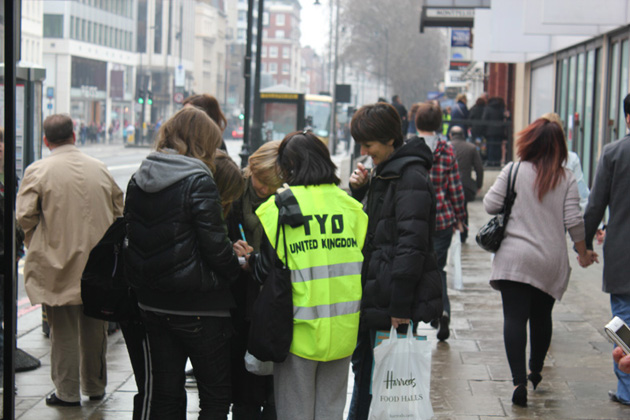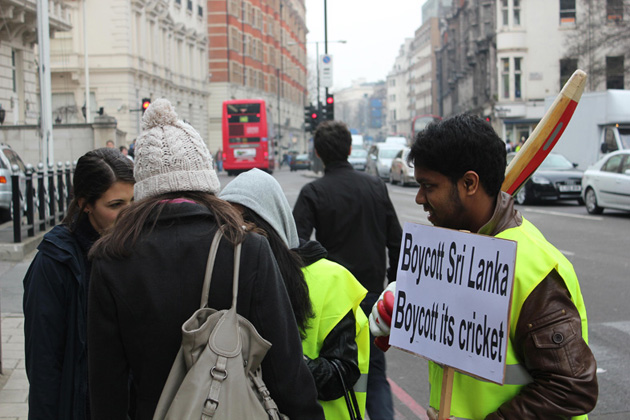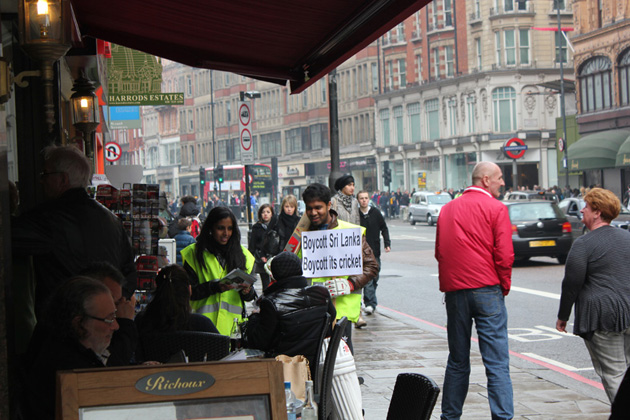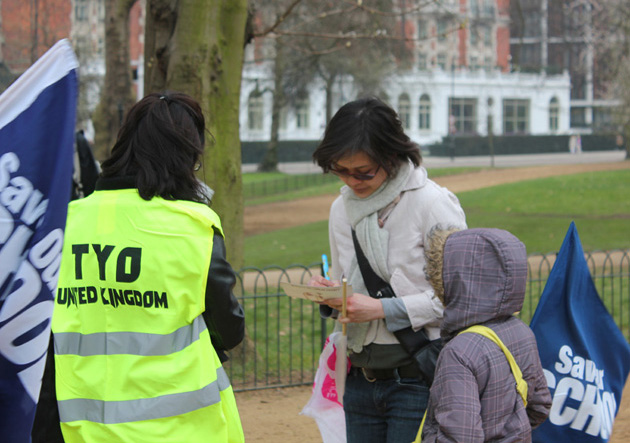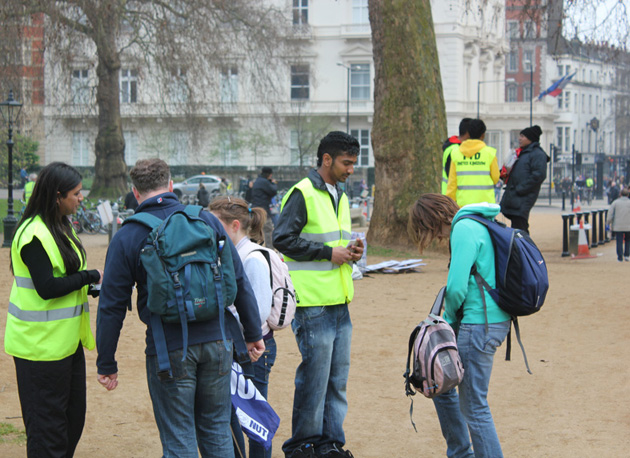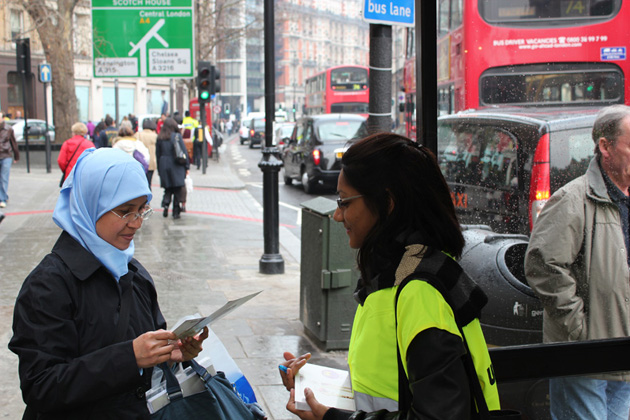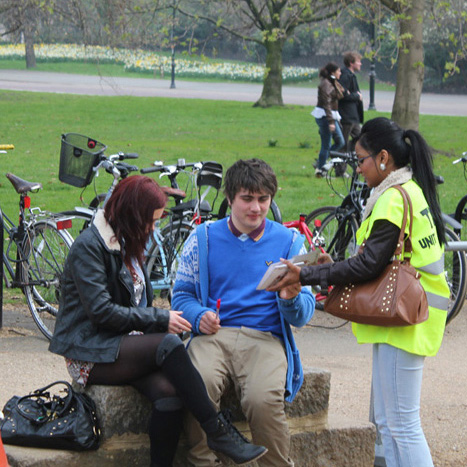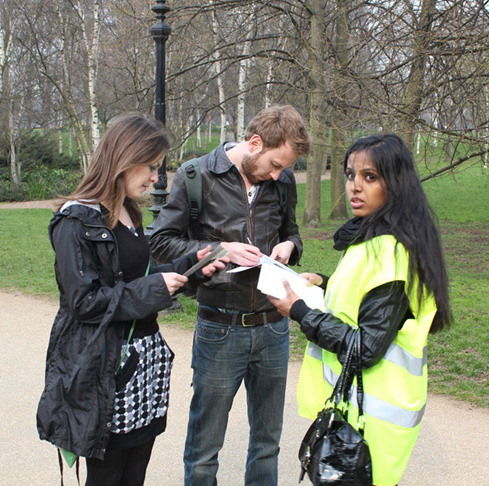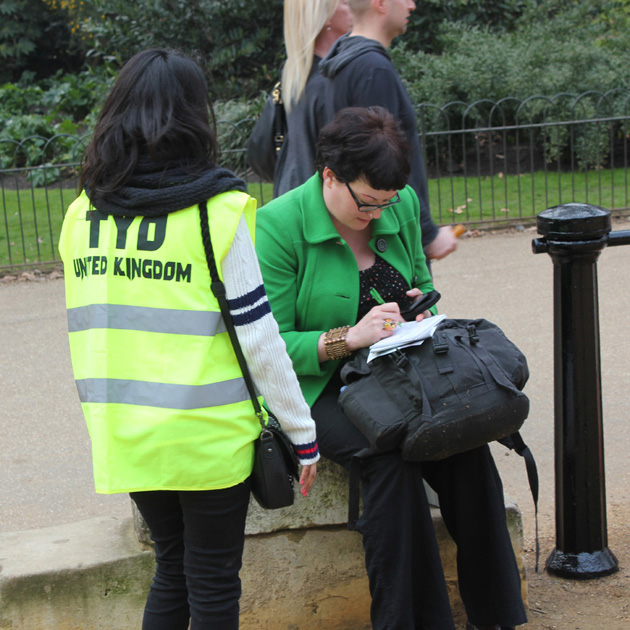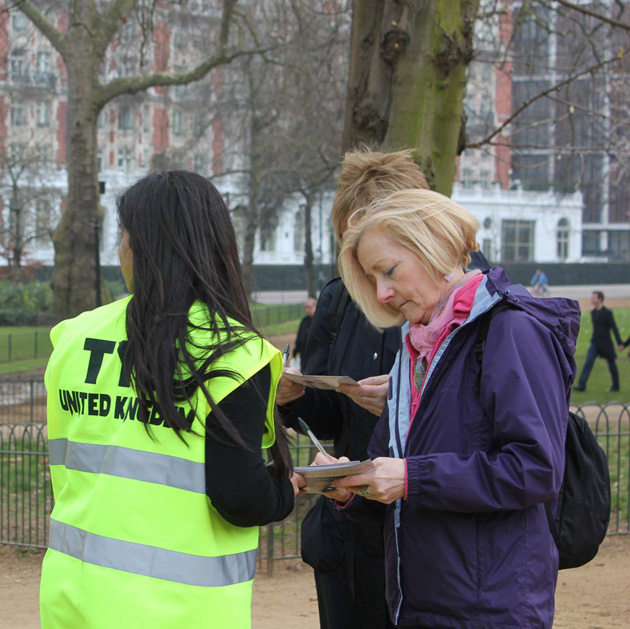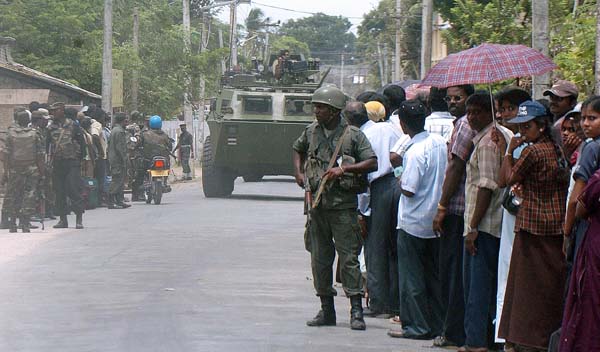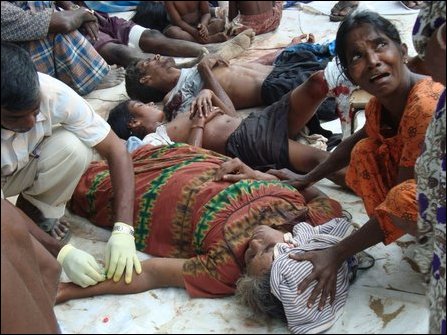With Tamil Nadu due to go to the polls within weeks, the issue of Indian fishermen being attacked in the waters between India and Sri Lanka has once again made the news.
The oceanic border between India and Sri Lanka has no visible demarcations and fishermen often find themselves on the wrong side.
While Sinhala fishermen (often seeking tuna) have been arrested in Indian waters and later released, there has also long been a history of the Sri Lankan navy attacking and killing Indian fishermen.
Poll related
Ahed of the forthcoming polls, Tamil Nadu Chief Minister M. Karunanidhi has pledged to find a solution to the killing of Indian fishermen by the Sri Lanka Navy.
"The increasing incidents of fishermen killings, torture and arrests in the recent past have become a regular thing. The only solution for this is to get back Katchatheevu.
Attempts with this effect would be made consulting central government," Karunanidhi said as he released his DMK party’s manifesto for the elections.
Meanwhile Tamil actor Vijay, who has come out in support of the main opposition AIADMK, has already staged a protest at Nagapattinam against the killings, while the party itself has made a similar pledge.
Similarly, the BJP has also promised to protect the interests of Indian fishermen and prevent attacks upon them by the Sri Lankan navy.
Targeted restrictions
The waters off the northern Sri Lankan coast have been under-fished for many years.
Citing security concerns during the war, the Sri Lankan Navy severely restricted the access Tamil fishermen had to the seas they depended on for their livelihoods.
Recently, after the defeat of the Liberation Tigers in May 2009, Sinhala fishermen from the south have been encouraged to fish the northern waters, while restrictions on Tamil fishermen have only been slightly reduced.
Thus the waters between India and Sri Lanka have a more abundant supply of fish than elsewhere, making for a relatively easy fishing experience for the Tamil Nadu fishermen and the Sinhala fishermen with their more up-to-date equipment.
For Tamil fishermen, who are attempting to rebuild lives after many years of deprivation, all these encroachments are a further hurdle to their being able to support themselves from their livelihoods.
Thus the Sri Lanka Navy has been selective in who can fish these waters from the Sri Lankan side, and then provided security and cleared the path for the chosen few.
Naval spin
Meanwhile, the Sri Lanka Navy has tried to portray the conflict as between two groups of fishermen, rather than one of military maneuvering to arrange matters in the interests of Sri Lanka’s Sinhala-first ideology.
A meeting, organized by a Sri Lankan government official, was held between fishermen from India and Sri Lanka to ‘resolve the issue’ but ended with no agreement reached.
Rear Admiral Susith Weerasekera, the Sri Lanka Navy’s northern commander, said that “every possible measure will be taken in order to improve relations with Sri Lankan and Indian fishermen”.
"Indians stray into Sri Lankan waters unwittingly", Weerasekera was quoted as saying by MSN India.
He charged that large scale fishing using trawlers in the international waters had soured the relationship between the fishermen across the Palk Straits between Sri Lanka and India.
He was speaking at a festival on the islet of Katchatheevu, which had been opened up to fishermen from both countries to mark St Anthony’s festival. This annual festival draws thousands of fishermen and their families from both countries.
No solution
Meanwhile the meeting between the fishermen from both countries ended with no solution reached.
A delegation of Indian fishermen from the coastal districts of Ramnad, Nagapattinam, Rameswaram, and Pudukottai of Tamil Nadu had met with Tamil fishermen from the North of Sri Lanka.
The Indian fishermen are said to have asked for more time to retrain in deeper sea fishing, while the Tamil fishermen are said to have “refused the request” as “it is their livelihood that is at stake,” reported Colombopage.
While there has been longstanding commercial competition between Tamil fishermen from India and Sri Lanka, prior to the war, they often worked it out cooperatively between themselves.
Sharing a language and culture, fishermen’s associations on both sides have in the past resolved any issues amongst themselves, without turning to military or governmental involvement.
But the end of Sri Lanka's protracted war has provided a Sinhala dimension to the simmering - and fostered - tensions in the Palk Strait.

